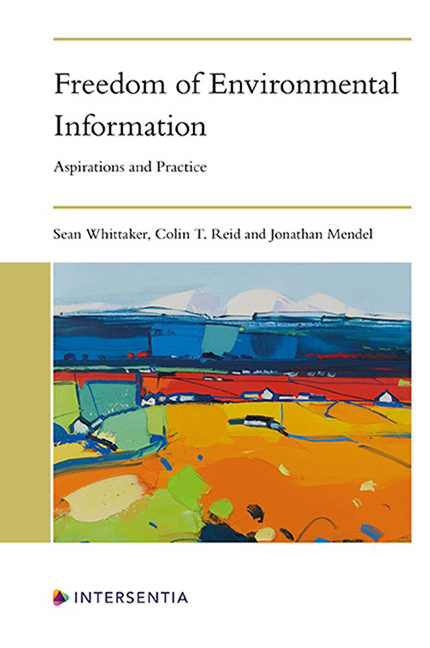Chapter 4 - Personal Users
Published online by Cambridge University Press: 15 November 2023
Summary
The previous chapter focused on professional users of the right to access environmental information and highlighted the stark mismatch between the expectations which underpin the right’s intended use and how the right is actually used in practice. Professional users serve as a clear example of this mismatch because the underpinning assumptions which animate the right and its legal regimes do not cater for this minority category of users. However, considering this mismatch in that context also provides the opportunity to identify whether the same is true for “personal users”. Personal users – the majority of those using the right – are more likely to be engaging directly with the environmental information held by public authorities and with the right’s environmental and participative aims. Yet, as with those in the professional user category, the individual actors within this second group are also diverse in terms of what motivates them, how they use information obtained and their levels of expertise in engaging with public authorities and the right itself. Thus, mismatches such as those identified in the context of professional users also arise in relation to personal users.
INTRODUCTION
The differences between personal users are key to how they experience and engage with the right of access to environmental information. These differences can be split into two themes. The first of these relates to the motive of personal users, referring to what drives these users to engage with the right and seek access to environmental information. The second theme relates to the levels of expertise that different users hold, encapsulating different aspects such as the ability in seeking proactively disclosed information, drafting and submitting requests for environmental information, and understanding any information accessed under the right. Such variety distinguishes different personal users from each other, creating a complex tapestry of personal users who are each engaging with the right in their own way and for their own reasons.
This variety lies at the heart of this chapter.
- Type
- Chapter
- Information
- Freedom of Environmental InformationAspirations and Practice, pp. 93 - 130Publisher: IntersentiaPrint publication year: 2023



